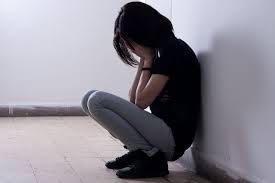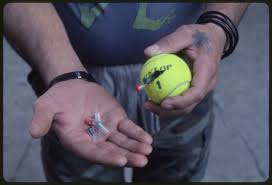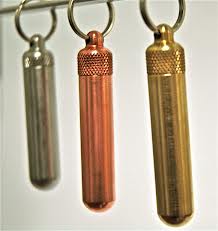 Substance abuse is an issue that I’ve been discussing with friends and visitors here on the blog lately. I have confronted this problem in my own life and wouldn’t wish the harm that drug abuse brings in its wake on anyone. But in the spirit of making lemonade when lemons come along, I have called upon those difficult experiences in my creative writing.
Substance abuse is an issue that I’ve been discussing with friends and visitors here on the blog lately. I have confronted this problem in my own life and wouldn’t wish the harm that drug abuse brings in its wake on anyone. But in the spirit of making lemonade when lemons come along, I have called upon those difficult experiences in my creative writing.
Today, a person close to me (who will remain anonymous) has agreed to tell her story of how drugs affected her family. As you would imagine, it was a painful journey for everyone. Scroll down, below the testimonial, for several links to resources that can be useful to those facing a similar challenge.
A Mother’s Struggle —
About 12 years ago a member of our family got into using drugs. At first, it was just experimenting. It probably started her first day of high school: out of the house, on her own more or less, because we sent her to a church school half an hour from our home (not to our local school). That space between home and school turned into a big enough crack for her to slip through.
Okay, I will say that this person was my own beloved daughter—the eldest of my three children. I won’t say more than that.
Over time when I became suspicious of what she was getting up to, I started searching her room and reading her notebooks. I did feel it was wrong to snoop through her personal things. At first I felt bad about that. You can imagine how a 14-year-old would scream about her privacy being invaded. Lucky for me, she never found out. Unlucky that I never found anything clear enough to bust her and try to put a stop to it. Not that I would have succeeded.
The trouble was that my daughter became a good liar. She could spin convincing tales of where she’d been after school, who she went with, etc., until I became desperate for any grain of truth. Of course, I could tell things were not right. Her personality was changing. In middle school, she had often been irritable, but now she would blow up over any tiny thing. She refused to help around the house, like she always did before, and her grades fell from excellent to okay to fair, and then poor.
It’s hard for me to think about those times. I feel guilty that I failed to nip problems in the bud. I knew she was getting up to something, even though her denials were always believable. But even when I KNEW her clothes smelled of pot or her words got slurred, she could put a good face on it. She would claim that she just tried a bit of beer or marijuana because other people she knew were trying them. Not her real friends—Oh, no! Her friends were not “like that,” they never would use nasty stuff. “Nasty” because she hated it when she tried it, and now that she knows what it’s like, she will never touch it again. YUCK!
Like, What’s wrong with people, Mom? Why do they do that?
She was much too clever to leave anything in her room or backpack or even a pocket. Never so much as one rolling paper or a bottle buried in the trash. Nothing definite, that’s what I’m saying.
I know that some parents have seen deceit like this, based on half-truths that pull you in. Other parents have not, because their kids are still reachable. My daughter had an instinct for what I would believe and what I would want to believe. It broke my heart to think that I could not get through to her, could not convince her to fess up and start fixing the problem. We used to be close. Couldn’t I still be her friend, somehow make her realize that I was on her side, even if she wasn’t a little girl anymore?
Before I wised up, it was like she had already come to believe that getting high was on her side. Drugs were on her side, her real friends. Not mom or family or people, at all.
 One time I slapped her in the face. She was bragging to a friend on the phone, using slang that I didn’t understand, but it was obvious she was bragging about something she had bought: What she had bought was expensive and important and a big secret. It sounded like she pooled money with a few others from her school. They would be selling it off in smaller bits to cover the cost. In other words, dealing. I was not in the room at the time, but her little sister was there and was overhearing the whole story. As I passed by the door, I caught on.
One time I slapped her in the face. She was bragging to a friend on the phone, using slang that I didn’t understand, but it was obvious she was bragging about something she had bought: What she had bought was expensive and important and a big secret. It sounded like she pooled money with a few others from her school. They would be selling it off in smaller bits to cover the cost. In other words, dealing. I was not in the room at the time, but her little sister was there and was overhearing the whole story. As I passed by the door, I caught on.
I saw that my older girl knew her sister could hear it all. She was bragging about this very bad thing in front of her sister, and she knew it.
That’s what hit me so hard.
I confronted my daughter. As usual she snowed me with lies. I slapped her in the face. 3 times I slapped her. I demanded she admit what she’d done. It was that desperate. She called me abusive and ran out of the house. It’s one of my most awful memories. I hate to think of it.
By the end of that day, I managed to get her set up in counseling. Sounds good, right? But this was at least the third time, over her junior high and high school years, that I got her into professional counseling. Something always came up to block any progress. For one thing, I know she tried to snow the counselor: She would talk about how unfair everyone was to her, and slip-slide over the heart of the matter. Or else she decided she hated the counselor (of which we had little to choose from), or my kids’ father refused to take part in the process.
This testimonial continues here. Links below provide helpful information on addiction and recovery. If you need to do additional reading, I’m offering a chance to receive $50 in free books through the month of April 2015. Click here for details.
Visit the Harvard Help Guide
Visit SoberNation
Visit Parent Treatment Advocates
Visit Gabbertsite from mental health counselor Gail Gabbert
And here’s a recent article from the New York Times on teenagers discussing what might have stopped them from using drugs.

